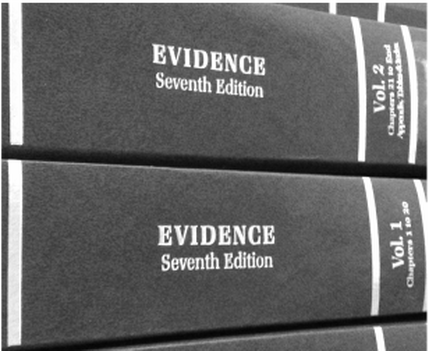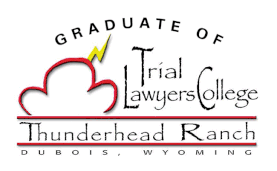Decades ago, professors, lawmakers, and judges decided jurors
were too dumb to handle knowing if a defendant had insurance and would consider
it in calculating their award. The
insurance industry, of course, backed this position, claiming if juries knew
the defendant had insurance, they would award unfairly high damages. (Much of this reasoning occurred before
liability insurance was so common and when even low-value cases tended to go
trial.)
The resulting Rule of Evidence 411 excludes, “[e]vidence that a person was or was not insured against liability.” The rule bars all lawyers and witnesses at trial from mentioning whether the defendant has liability insurance, much less how much coverage. In fact, judges tend to order that no one even use the word “insurance” at trial, in case jurors suddenly figure out what they already suspect.
Rest assured, if you see a person sitting at the defendant’s table with a well-dressed lawyer (or two or three) and plenty of experts testifying at trial, an insurance company is paying for it all. The only exception is where a defendant in a liability case is wealthy. In that case, an insurance company is still likely paying for the defense, but the defendant will also have independent counsel monitoring the insurance defense lawyers to keep them honest.
Is it fair for juries to be kept in the dark about the existence of liability insurance? I don’t think it is. Jurors know insurance is likely in play, but still worry it might not be. Often, the defendant is a nice, relatable person who accidentally caused a horrible car wreck or even a good doctor messed up one time. The jury wants to award reasonable damages to the plaintiff, but fears bankrupting the nice defendant.
As a result, the insurance secret becomes a benefit to the defendant and his or her insurance company, as opposed to a neutral rule. That is, the jurors are afraid to award the full amount of the damages the injured person suffered, fearing they will cause too much harm to the nice defendant. Thus, it makes more sense at this point, when almost no civil liability trials occur without insurance money in play, to quit pretending juries are dumb and let them in on the “secret.”
The resulting Rule of Evidence 411 excludes, “[e]vidence that a person was or was not insured against liability.” The rule bars all lawyers and witnesses at trial from mentioning whether the defendant has liability insurance, much less how much coverage. In fact, judges tend to order that no one even use the word “insurance” at trial, in case jurors suddenly figure out what they already suspect.
Rest assured, if you see a person sitting at the defendant’s table with a well-dressed lawyer (or two or three) and plenty of experts testifying at trial, an insurance company is paying for it all. The only exception is where a defendant in a liability case is wealthy. In that case, an insurance company is still likely paying for the defense, but the defendant will also have independent counsel monitoring the insurance defense lawyers to keep them honest.
Is it fair for juries to be kept in the dark about the existence of liability insurance? I don’t think it is. Jurors know insurance is likely in play, but still worry it might not be. Often, the defendant is a nice, relatable person who accidentally caused a horrible car wreck or even a good doctor messed up one time. The jury wants to award reasonable damages to the plaintiff, but fears bankrupting the nice defendant.
As a result, the insurance secret becomes a benefit to the defendant and his or her insurance company, as opposed to a neutral rule. That is, the jurors are afraid to award the full amount of the damages the injured person suffered, fearing they will cause too much harm to the nice defendant. Thus, it makes more sense at this point, when almost no civil liability trials occur without insurance money in play, to quit pretending juries are dumb and let them in on the “secret.”



